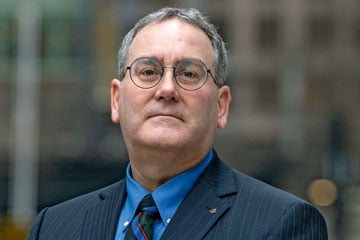
Candidates for the Law Society of Ontario’s board say the LSO’s $2,201 annual fee for lawyers is something they would scrutinize if elected.

Candidates for the Law Society of Ontario’s board say the LSO’s $2,201 annual fee for lawyers is something they would scrutinize if elected.
Benchers in Convocation approved the LSO’s 2019 budget in October 2018.
The budget calls for $142.54 million in gross expenditures, funded in part by an increase in fees paid by lawyers and paralegals that went into effect on Jan. 1, when the fees were due.
Lawyers’ fees rose $18 to $2,201 in 2019 from $2,183 in 2018, according to the LSO’s 2019 budget summary.
The budget also noted that the law society’s deficit is expected to rise to more than $8.7 million this year, from more than $7.5 million last year.
“If you look at the budget, the starting proposition is ‘This is what we want, therefore, this is what it is going to cost,” says E. Patrick Shea, a partner at Gowling WLG in Toronto who is running for bencher in the 2019 election, which is due to take place April 30.
“Maybe we can’t do it all, though. Maybe decisions need to be made — hard decisions — about what we can do and how much it’s going to cost.”
Shea says that, although most of the spending in the law society’s 2019 budget makes sense for a legal regulator, benchers in Convocation might have to make some tough choices.
The law society’s budget, which was announced as “approved” by Convocation on Oct. 25, 2018, says it aims to demonstrate “fiscal restraint” and focus on “professional regulation, professional development and competence, policy development and facilitating access to justice.”
Shea pointed to some budget items that could potentially yield cost savings, such as a public awareness campaign that is budgeted to cost $600,000 in 2019 and will total $1.2 million if the law society does not consider further expenditures this fall. The budget for bencher honorariums and per diem payments, as well as expenses and functions, is set to rise by $370,000 to $3.2 million, according to the budget.
“The budget needs to be reviewed, and you need to consider what in the budget is essential,” says Shea.
In Ontario, some lawyers working in education, legal clinics or government may only have to pay 50 per cent of the annual fee, the LSO’s website says.
There are 6,500 lawyers who are in the 50-per-cent category, according to the law society.
A discount may also apply to lawyers on parental leave or not working, according to the LSO website.
Lawyers who have practised in Ontario for 50 consecutive years are granted fee exemptions, and licensees who are incapacitated or are over age 65 can apply for fee exemption, the LSO’s website says.
LSO communications advisor Susan Tonkin said in an email that the law society’s annual pre-authorized payment plan will provide a $50 discount, pro-rated by fee category.
Tonkin says fees take into account law libraries and the money set aside for clients “who have lost money because of the dishonesty of a lawyer or paralegal.”
The budget is set “based on the funding needed for operations in support of the law society’s strategic priorities, core functions and the priorities of Convocation,” says Tonkin.
Billeh Hamud, a sole practitioner who runs his own practice, Hamudlaw, in Toronto, says that, if he is elected bencher, he would like to see if some of the money from fees can be reallocated to better support lawyers, such as guidance and assistance for new lawyers that are starting out in the profession on how to run a business or financial auditing preparation.
Bencher candidate Michael Metzger, a sole practitioner based out of Fort Erie, Ont., says that, if he had stayed in New York State, where he worked until 2014, he would be paying US$350 every two years to maintain his licence. He says paying the Ontario fees were eye-opening for him, and he hopes to do a top-to-bottom review of the budget if elected, to see how it is tailored to strategic priorities such as mental health and discrimination.
“We have to take a good look at that and see where the resources are being allocated. Are we getting value for our dollars? Frankly, are the people working [on these issues] being supported properly?” he says.
Phil Pothen, a sole practitioner practising environmental law in Toronto, who is not running for bencher, says reducing the overhead costs of lawyers serving under-represented groups could improve access to justice, while increasing fees for high earners could improve the law society’s ability to provide services.
“I think the general public can be forgiven for imagining that lawyers are uniformly affluent, but the law society is certainly in a position to know better and that ought to be reflected in the fee structure,” says Pothen.
“It’s the kind of issue that a lawyer might not even want to talk about because you want to keep up appearances. . . . The progressive law society fee option has not become as much of a bencher election issue as it could have been over the years because people are reluctant to admit [the $2,201 fee] is a big deal for them.”
The online version of this story removed two remarks from Billeh Hamud regarding the hiring of more discrimination and harassment counsel at the Law Society of Ontario, after Hamud said the comments should have noted that the DHC program only provides advice and voluntary mediation, and needs to have the same powers as the investigation counsel.